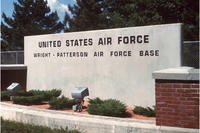KABUL, Afghanistan — Pakistan's top army officer made an unscheduled visit to Kabul Wednesday to discuss potential military responses to the bloody attack by Pakistani militants on a school in Peshawar.
Pakistani Chief of Staff Gen. Raheel Sharif held emergency meetings with Afghan President Ashraf Ghani and his top national security advisers, as well as International Security Assistance Force commander Gen. John Campbell, officials said.
Shortly before the visit, Pakistani Prime Minster Nawaz Sharif told reporters in Islamabad that the Kabul meetings were focused on coordinating "a joint operation to counter terrorism and eliminate militants hiding inside Afghanistan," particularly insurgents allied with the Pakistan-based Tehreek-e-Taliban.
The visit comes less than a day after six of the group's gunmen stormed the Army Public School and College in Peshawar, setting off suicide bombs and firing into offices and classrooms. Troops and the insurgents traded gunfire throughout the daylong siege. At the end, 141 students and staff lay dead, with 120 others wounded.
Islamabad intercepted communications from TTP commander Umar Naray from across the border in Afghanistan showing he coordinated the school attack, according to reports in the Pakistani media.
Ghani and the leaders of the Afghan Taliban condemned the attack in separate statements on Tuesday, characterizing the massacre as un-Islamic.
On the same day as Sharif's visit, a U.S. drone strike reportedly killed 11 Pakistani Taliban members in eastern Afghanistan. The strike took place as the insurgents were travelling in Sherzad district in Nangarhar province, near the Pakistan border, district governor Mahlem Mashuq told Reuters.
The eastern provinces, long known to be safe havens for insurgents operating on both sides of the border, have been one of the most violent regions of Afghanistan throughout the 13-year war.
Gen. Sharif's visit was also geared toward getting Kabul to back joint operations to capture Mullah Fazlullah, head of the Pakistan Taliban, the Pakistani prime minister said Wednesday. Fazlullah, who is reported to be hiding in northeastern Afghanistan, has long been a target of U.S. and Pakistani counterterrorism operations.
Fazlullah's extradition to Pakistan has been one of several hot-button issues in the contentious relationship between Afghanistan and Pakistan.
Kabul and Islamabad have traded claims and counterclaims for years, accusing each other of providing safe havens for terrorist groups along their shared border.
The shockingly violent attack in Peshawar could force Islamabad to act unilaterally to take Fazlullah should Kabul refuse to cooperate, Sharif warned. "If Afghan authorities fail to act this time, we will explore all options, including hot pursuit," he told reporters.
Since Ghani assumed the presidency in September, both Kabul and Islamabad have sought to improve relations, including coordinating efforts to fight militancy on both sides of the border.
Pakistani President Mamnoon Hussain was the only head of state to attend Ghani's inauguration, and since then several senior Pakistani officials also have visited Kabul, including the foreign minister, and the country's intelligence chief.
In the past decade, Washington and Kabul have repeatedly accused Pakistan's Inter-Services Intelligence agency of funding and equipping both the Afghan and Pakistani Taliban as a way to exert its influence in Afghanistan. Numerous border skirmishes involving Pakistani troops and cross-border shelling of towns and villages in eastern Afghanistan have kept both countries on edge throughout the 13-year Afghan war. Pakistan, in turn, has accused Afghanistan of turning a blind eye to cross-border incursions and attacks by the militants on its own forces.
The insurgents in both countries have taken advantage of such rivalries and the lack of coordination between the two governments to avoid attacks by the security forces.
Despite the latest efforts at rapprochement between Kabul and Islamabad, Afghan police claim to have found clear ties between Pakistani intelligence and the three-week spate of bombings in the Afghan capital, including those specifically targeting foreign guest houses and a British Embassy convoy.
Gen. Mohammad Zahir, who has since stepped down as Kabul police chief, said last month the explosive material employed in most of the Kabul attacks was "military grade" ordnance used by the Pakistani military. Pakistan has not responded to these allegations.
And the transfer earlier this month of Latif Meshud, a top Afghan Taliban leader, from a U.S.-run prison near Kabul to Pakistani custody has been sharply criticized by Afghans as a Pakistani-American deal made behind Kabul's back.
Zubair Babakarkhail contributed to this report.




























